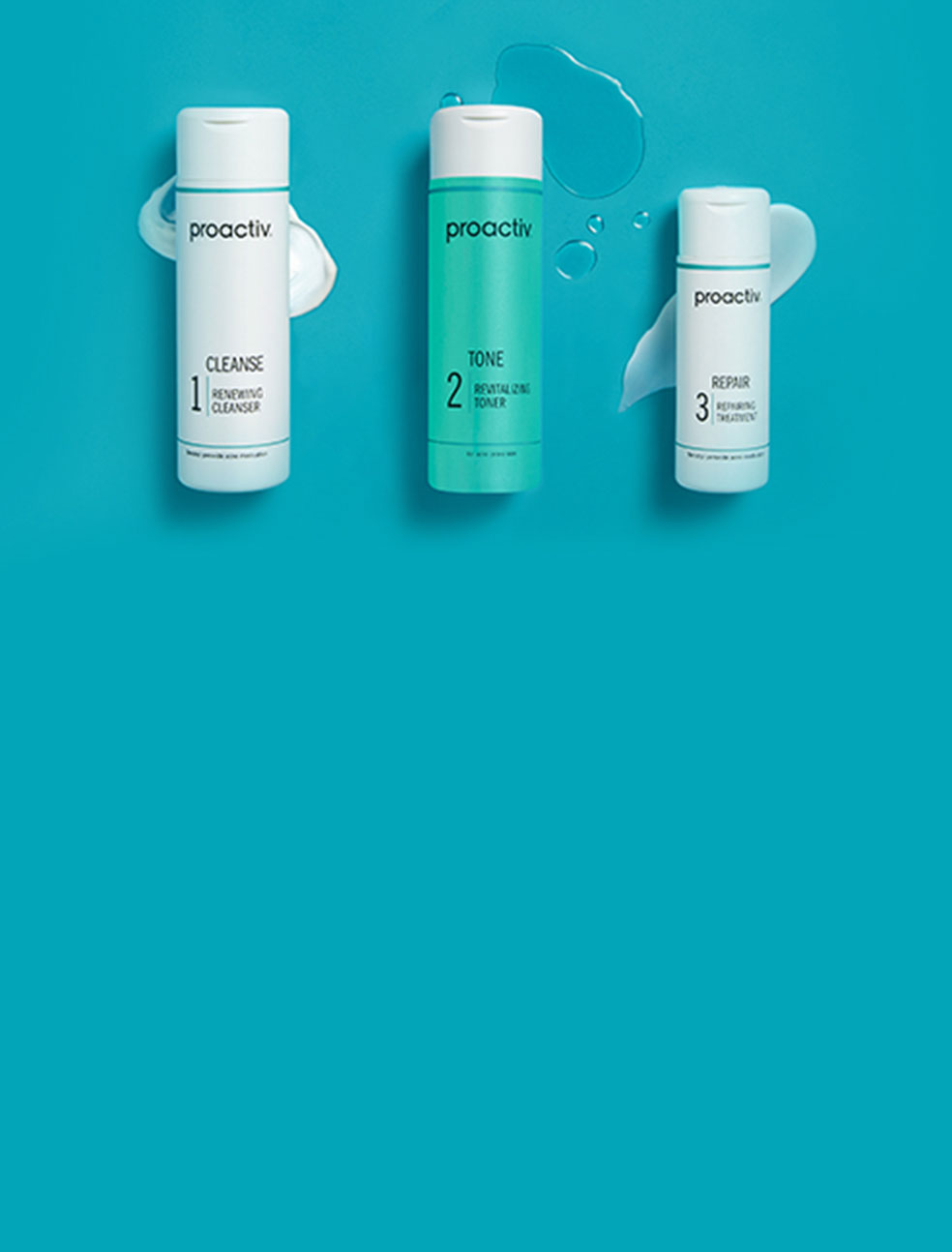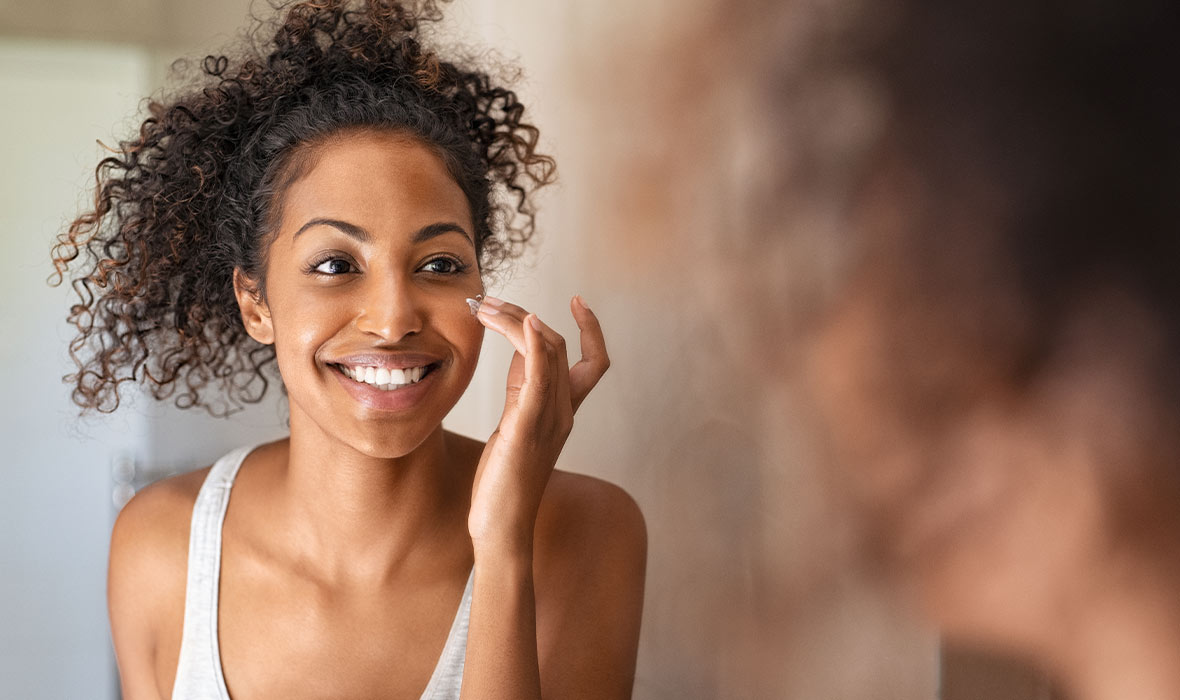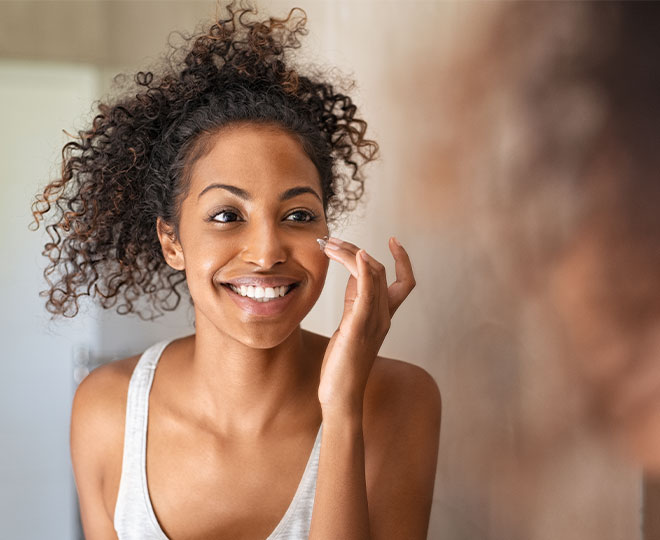Acne might be the most common skin condition in the United States, but that fact probably doesn’t stop you from feeling embarrassed when pimples show up on your face. It’s hard to believe, but up to 50 million Americans each year struggle with acne. Adolescence (which begins at ages 11 or 12) is when pimples can start to show up, but they’re not limited to just teen years and acne can last well into adulthood.
As frustrating as acne is to deal with, the good news is we can tell you how to prevent pimples. That’s because acne is treatable — and can be easily managed by tweaking your habits and skincare routine.
If you’re curious about how to prevent pimples, ahead is a closer look into all things acne — how to prevent pimples, how to treat pimples, which over-the-counter products to try, and when it may be time to book an appointment with a dermatologist.
What are pimples and why do they form?
To help you understand what pimples are and why they show up on your skin, it’s important to learn why we get acne.
Pimples are a type of acne, and they occur when hair follicles under the skin become clogged with excess sebum, dead skin cells, bacteria, and other gunk. This blockage leads to the formation of clogged pores (what you probably call blackheads and whiteheads) and red, inflamed lesions, more commonly known as the pimples or zits. Pimples can range in size and severity — from smaller and milder papules and pustules to severe cysts and nodules. They can show up anywhere on your skin where you have pores (that’s pretty much everywhere!). Hormonal changes, daily habits, and genetics are three of the main things that cause acne breakouts.
Hormonal changes (especially during teen years and during pregnancy, which is when hormones are at their highest) play a major role in how pimples form, as do genetics. That means if you have a family history of acne, your risk for pimples is just as high.
Having oily skin can increase your chances for acne, because that sebum is the glue that creates clogged pores, which are the building blocks of other types of acne (like those red, painful pimples). Acne can also be triggered by the use of pore-clogging hair and skin products, as well as certain medications.
How to prevent pimples
Now that you know what pimples are and how they form, you can start to understand how to prevent pimples.
It’s important to understand that there is no cure for acne — it will never just disappear forever. But there are plenty of easy ways to manage your acne and prevent new breakouts from surfacing.
Pimples form because of a combination of sebum (your skin’s oil), dead skin cells (which naturally shed every day), and p. acnes bacteria (which are naturally occurring on your skin’s microbiome). These three create the perfect recipe for a pimple. To prevent these ingredients from turning into a pimple, the trick is to make sure they are swept out of your pores before they can come together.
That means removing excess oil and exfoliating regularly to remove dead, dry skin cells. Washing your face regularly (twice a day, everyday) is the best way to do this. Gently cleanse your skin with an acne-fighting cleanser for 1 to 2 minutes every morning and every evening. Ingredients like salicylic acid helps unclog pores and benzoyl peroxide kills acne-causing bacteria. Be sure not to overwash your face – this can dry out your skin and encourage it to produce even more oil, leading to (yep, you guessed it) more pimples.
Tweaking your daily habits (some of which you may not even be aware of!) can also prevent pimples from getting out of control. Here’s some tips for how to prevent pimples:
- Wash your face twice a day, every day
- Use acne-fighting ingredients like benzoyl peroxide, salicylic acid, and sulfur
- Stick to a regular skincare routine every morning and night that involves cleansing, toning, treating, and moisturizing your skin
- Keep your hair (especially if it’s greasy) away from your face
- Avoid oil-based cosmetics and skincare products — always choose noncomedogenic formulas
- Avoid touching your face with your hands
- Regularly wash anything that is touching your face (think hats, cell phones, and headphones, to name a few)
- Never (ever) pop or pick at your pimples, this spreads bacteria, makes the infection worse, and can cause scarring or an infection
- Regularly wash your sheets and towels to avoid a buildup of dirt, bacteria, oil, and dead skin cells
- Avoid anything that presses against your skin and clogs pores (like sweatbands, tight workout gear, or hats)
- Check the side effects of any medications you are on, some can cause acne
- Try eating carbohydrates and/or dairy in moderation — for some people, this can alleviate breakouts
How to treat pimples
You know how to prevent them now, but if you already have some breakouts that have shown up on your skin, you probably want to know how to treat them, stat. How to treat pimples really depends on the severity of your acne.
For example, milder cases of acne (whiteheads and blackheads) may respond well to products containing salicylic acid and benzoyl peroxide (BPO). Salicylic acid unclogs pores and drys up excess sebum, and BPO does the same while also eliminating acne-causing bacteria. However, if your acne is more severe (big clusters of papules and pustules, or deep pimples like nodules and cysts), or isn’t responding to over-the-counter products, it may be time to talk to a doctor. For these more stubborn or severe cases, oral and topical acne medications available only by prescription are necessary to kick acne to the curb.
More on the many over-the-counter products, medications, and derm-administered treatment options you’ll encounter after the jump.
Products that can help treat pimples
If you are dealing with a milder case of acne, over-the-counter products can be helpful in treating pimples. These include skincare products (cleansers, toners, creams, topical gels, spot treatments, moisturizers, etc.) containing benzoyl peroxide, sulfur, adapalene, resorcinol, or salicylic acid — all well-researched anti-acne ingredients that have years’ worth of science to back up their claims.
If you are facing a severe case of acne, or your pimples aren’t responding to over-the-counter ingredients, it may be time to consult a dermatologist — they can prescribe topical and oral antibiotics, prescription gels, retinoid creams, birth control pills to regulate hormonal changes, and isotretinoin pills for severe acne.
Dermatologists can also perform in-office treatments such as light-based photodynamic therapy (PDT), which is a form of light therapy, and can directly cause phototoxic and photothermal damage to sebaceous glands, resulting in reduced gland size and sebum production. Similarly, chemical peels (a non-invasive skin resurfacing procedure that promotes exfoliation) decreases sebum production and pore size, and has anti-inflammatory and anti-bacterial properties to keep new breakouts from showing up.
The bottom line
Acne can be pretty embarrassing to deal with at times, especially when pimples are large and show up unannounced. However, acne is a common skin care disorder that many people deal with at some point in their lives.
Thankfully, pimples can be managed and treated by shifting your habits and using better, acne-fighting skincare. Not picking at or popping your pimples, steering clear of comedogenic products, and always washing your sheets and towels are all daily habits that can be helpful in preventing pimples. Use of over-the-counter products can be equally helpful — particularly products containing benzoyl peroxide, sulfur, adapalene, resorcinol, or salicylic acid ingredients.
There are, however, instances when professional intervention and treatment are required — those with severe cases or stubborn pimples that won’t clear will want to consult with a dermatologist. These skin pros can prescribe antibiotics and/or topical prescription products or perform a series of professional peels or light therapy to help alleviate acne.
The simple answer to the question "How to prevent pimples?" is with time, patience, and some good habits. Understand that acne doesn’t clear up overnight, so it may take some time to treat your current pimples and prevent new breakouts from forming.

Try Proactiv Solution® — for oily and combination skin — featuring prescription-grade benzoyl peroxide to help kill acne-causing bacteria at its source.
choose this routine
Try Proactiv Solution® — for oily and combination skin — featuring prescription-grade benzoyl peroxide to help kill acne-causing bacteria at its source.

Try Proactiv Solution® — for oily and combination skin — featuring prescription-grade benzoyl peroxide to help kill acne-causing bacteria at its source.
choose this routine
Try Proactiv Solution® — for oily and combination skin — featuring prescription-grade benzoyl peroxide to help kill acne-causing bacteria at its source.






